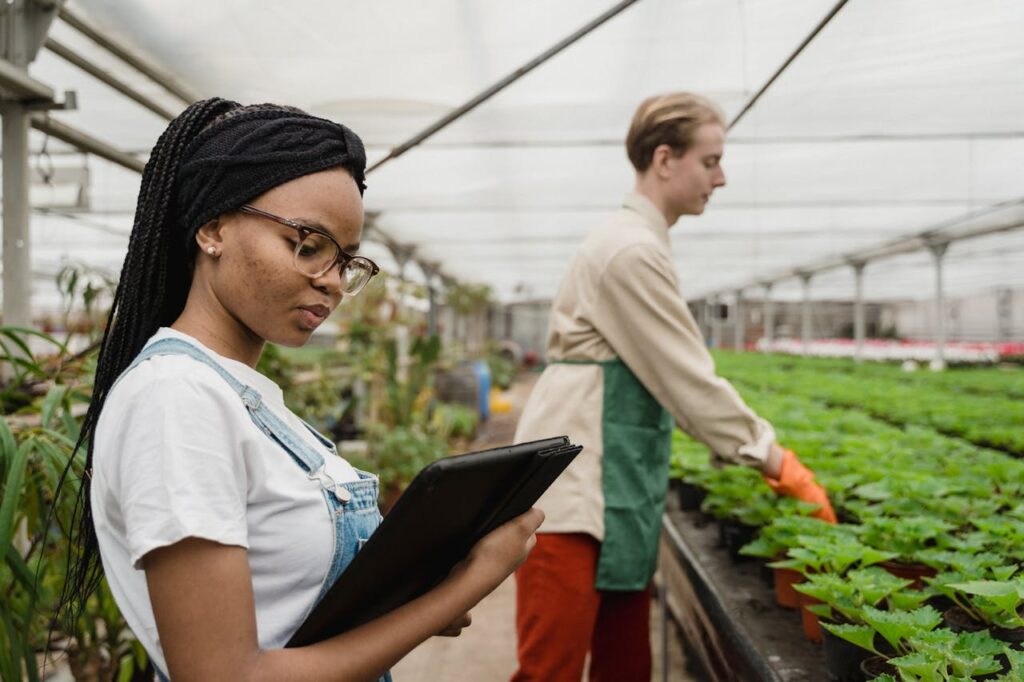The digital age has ushered in a new era of opportunities, with technologies such as mobile devices, digital services, and Artificial Intelligence (AI) playing pivotal roles in transforming societies and advancing sustainable development. As the world strives to achieve the United Nations Sustainable Development Goals (SDGs) by 2030, the youth, who are the most adept at navigating the digital landscape, have a unique role to play. Their engagement with digital technologies can catalyze progress across various sectors, driving innovation and fostering sustainable solutions.

Education is the cornerstone of sustainable development, and digital technologies offer unprecedented opportunities to enhance learning. Youth are leveraging mobile devices and online platforms to access educational resources, participate in virtual classrooms, and engage in lifelong learning. Digital tools like Massive Open Online Courses (MOOCs) and educational apps make high-quality education accessible to students worldwide, breaking down geographical and economic barriers. For instance, platforms such as Coursera and Khan Academy provide tailored learning experiences that adapt to individual needs, thereby improving educational outcomes and promoting SDG 4: Quality Education.
Digital technologies are revolutionizing healthcare, making it more accessible and efficient. Young innovators are at the forefront of developing AI-driven applications that aid in early diagnosis, personalized treatment, and remote patient monitoring. Mobile health apps enable users to track their health metrics, consult with doctors remotely, and receive medical advice without leaving their homes. These advancements are particularly beneficial in remote and underserved areas, where access to healthcare facilities is limited. By improving healthcare delivery and outcomes, these digital solutions contribute significantly to achieving SDG 3: Good Health and Well-being.

Agriculture, a critical sector for food security and economic development, is being transformed by digital technologies. Youth-led initiatives are harnessing AI and mobile technologies to develop precision agriculture tools that optimize farming practices. These tools enable farmers to monitor soil health, weather conditions, and crop growth in real-time, leading to increased efficiency and sustainability. By enhancing agricultural productivity and sustainability, digital technologies support SDG 2: Zero Hunger and contribute to more resilient food systems.
Climate change poses a significant threat to sustainable development, and digital technologies offer powerful tools to combat it. Young environmentalists are using AI to improve climate modeling, predict extreme weather events, and inform disaster preparedness strategies. Digital platforms facilitate the sharing of climate data and best practices, fostering global collaboration on climate action. Additionally, AI-driven energy management systems optimize energy consumption in buildings and industries, reducing carbon footprints. These efforts are crucial for achieving SDG 13: Climate Action.
Digital technologies have the potential to bridge inequality gaps by providing equal access to information, services, and opportunities. Youth are leveraging digital platforms to promote financial inclusion, access to justice, and social equity. Mobile banking apps and digital financial services extend banking facilities to unbanked populations, empowering them economically. Moreover, social media platforms enable marginalized voices to be heard, fostering a more inclusive and equitable society. By addressing inequalities, these digital initiatives advance SDG 10: Reduced Inequalities.

Innovation and resilient infrastructure are key drivers of sustainable development. Youth-led startups and tech enterprises are pioneering innovative solutions that drive economic growth and development. Digital technologies enable the creation of smart cities, where integrated infrastructure improves urban living conditions, reduces traffic congestion, and enhances public safety. AI-powered manufacturing processes increase efficiency and sustainability in production, contributing to SDG 9: Industry, Innovation, and Infrastructure.
In conclusion, the youth’s engagement with digital technologies is instrumental in advancing sustainable development across various sectors. By harnessing the power of mobile devices, digital services, and AI, young innovators are driving progress toward the SDGs. Their efforts in enhancing education, healthcare, agriculture, climate action, equality, and infrastructure development exemplify the transformative potential of digital pathways. As we move forward, it is crucial to support and empower the youth in their digital endeavors, ensuring a more sustainable and equitable future for all.
